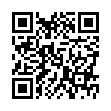Enter Dashboard, Expose, or Spaces Temporarily
Hold down F9, F10, F11, or F12 (or whatever you've set for the Expose and Spaces keyboard shortcuts) for a few seconds, and then release the key to enter and leave the appropriate mode without having to press the key again. This is particularly useful for Dashboard, in which you can check the contents of a widget and then return to your work with only a single key press.
Visit plucky tree
Submitted by
cricket
Recent TidBITS Talk Discussions
- Alternatives to MobileMe for syncing calendars between iPad/Mac (1 message)
- Free anti-virus for the Mac (20 messages)
- iTunes 10 syncing iPod Touch 4.1 (2 messages)
- Thoughts about Ping (16 messages)
Related Articles
- Vonage Releases Apps for International Calling (06 Oct 09)
- Apple Responds to FCC's App Store Questions (21 Aug 09)
- Google CEO Leaves Apple Board, Signaling Increased Competition (03 Aug 09)
Published in TidBITS 989.
Subscribe to our weekly email edition.
- Apple Fixes Serious iPhone SMS Vulnerability
- Simplify Security with "Take Control of Passwords in Mac OS X"
- David Pogue's "Take Back the Beep" Campaign
- Time Capsule Bumped to 2 TB
- Eye-Fi's Geo Targets Apple for Wireless Photo Transfers
- Google CEO Leaves Apple Board, Signaling Increased Competition
- RSS Feeds for TidBITS Comments
- Apple Releases MobileMe iDisk app for iPhone and iPod touch
- Fake Apple Tablet Rumors
- Apple: Web-enabled iPhone Apps Aren't for Kids
- Boxcar Offers Push Notifications from Twitter
- TidBITS Watchlist: Notable Software Updates for 03-Aug-09
- ExtraBITS for 03-Aug-09
- Hot Topics in TidBITS Talk for 03-Aug-09
FCC Queries Apple, AT&T, and Google about Google Voice App
It looks as if Apple won't be able to fall back on the utterly lame "I can't go into granular detail" answer for why certain applications have been rejected and removed from the App Store. On 31-Jul-09, the U.S. Federal Communications Commission (FCC) sent letters of inquiry to Apple, AT&T, and Google asking about the circumstances that led to Apple rejecting a Google Voice app and removing previously approved third-party apps that used Google's service.
According to an article at eWeek, Google submitted a Google Voice application six weeks ago, which was rejected. Soon after, related third-party apps were removed from the store.
Because the App Store is the only point of sale for applications for the iPhone and iPod touch, Apple has the power to approve or reject apps. For example, the company does not allow apps that include pornography or that circumvent the App Store for purchasing products.
The trouble is, many apps recently have been rejected on the grounds of "duplicating iPhone functionality," without further explanation from Apple. That's the reason cited for the removal of Riverturn's VoiceCentral (the source for the quote above, relating a frustrating phone call from "Richard" at Apple) and other apps.
Apple is clearly hanging a lot of weight on this particularly thin branch, however, since numerous existing apps duplicate the functionality of the Notes app, the Weather app, and the Calculator app, to name just a few.
The features that Google Voice and related apps duplicate are ones provided by Apple's Phone app - more specifically, features for which AT&T charges iPhone owners. Google Voice gives you a phone number, voicemail service (including text transcription of messages), and free phone calls. (Om Malik notes that the Google Voice service still uses AT&T's network for calls, so AT&T is still making money from the minutes used by Google Voice subscribers.)
The FCC's actions are part of a broader probe into exclusive mobile handset deals, such as the one that ties Apple and AT&T. Reading the FCC letter to Apple (PDF), it's clear the FCC is interested in whether Apple acted on instructions from its cellular partner in the United States. Question #2 reads:
"Did Apple act alone, or in consultation with AT&T, in deciding to reject the Google Voice application and related applications? If the latter, please describe the communications between Apple and AT&T in connection with the decision to reject Google Voice. Are there any contractual conditions or non-contractual understandings with AT&T that affected Apple's decision in this matter?"
John Gruber at Daring Fireball noted that "a reliable little birdie has informed me that it was indeed AT&T that objected to Google Voice apps for the iPhone. It's that simple."
The FCC brings up questions that numerous iPhone developers have been asking. Question #6 reads:
"What are the standards for considering and approving iPhone applications? What is the approval process for such applications (timing, reasons for rejection, appeal process, etc.)? What is the percentage of applications that are rejected? What are the major reasons for rejecting an application?"
Although these seem to be easy questions, Apple so far hasn't shared the answers. The company's inconsistency when rejecting applications - and, more so, the black hole of communication about the review process - is making some developers question whether it's worth investing time and money into creating iPhone apps. (Steven Frank, Justin Williams, Craig Hockenberry, and Layton Duncan have all written must-read essays about troubles developing for the iPhone, focusing on the App Store and Apple's lack of meaningful communication, as well as the effects of low pricing of apps.) A blog called Application Submission Feedback is also collecting "unpublished rules and clarifications from Apple's App Review team that can cause your iPhone app to be rejected."
The FCC letter notes Apple can request that information or documents be treated confidentially, so we may not learn about the specifics of the Google Voice app rejection. Responses are due to the FCC by 21-Aug-09.
 SYNC YOUR PHONE with The Missing Sync: Sync your calendar,
SYNC YOUR PHONE with The Missing Sync: Sync your calendar,address book, music, photos and much more between your phone
and Mac. Supports ANDROID, BLACKBERRY, PALM PRE and many
other phones. <http://www.markspace.com/bits>

